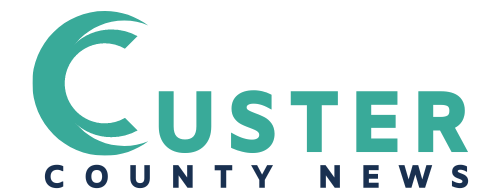Philosophy has captivated curious minds for centuries, offering profound insights into existence, morality, and the human condition. Whether you’re taking your first steps into philosophical inquiry or seeking to deepen your understanding, the right books can illuminate these complex ideas and make them both accessible and engaging. Exploring the works of history’s greatest thinkers and contemporary voices alike opens doors to critical thinking and a richer perspective on life’s most fundamental questions.
Essential philosophy books for beginners
Starting your journey into philosophy can feel daunting, but several texts are specifically designed to welcome newcomers without overwhelming them. These works provide a solid foundation, introducing key concepts and questions that have shaped philosophical discourse throughout history. For those eager to learn more about the subject without getting lost in dense academic language, these books serve as excellent gateways.
Classic introductory texts that make philosophy accessible
Among the most celebrated introductory works is Bertrand Russell’s short yet powerful book, which distils major philosophical questions into an accessible format spanning roughly a hundred pages. Russell’s clear prose and logical structure make complex ideas about knowledge, reality, and perception surprisingly approachable for readers with no prior background. Another remarkable starting point comes from Thomas Nagel, whose work poses fundamental questions about consciousness, free will, and morality in a straightforward manner that encourages readers to think independently rather than simply absorbing information.
Plato’s dialogues, particularly those focusing on Socrates, remain timeless introductions to philosophical thinking. These conversations explore themes of political obligation, citizenship, and the examined life through engaging narratives rather than dry theoretical treatises. The Socratic method demonstrated in these texts teaches readers how to question assumptions and pursue truth through dialogue, a skill that remains central to philosophical inquiry today. For those interested in how philosophy applies to daily existence, works exploring Stoicism offer practical wisdom alongside theoretical reflection, making ancient philosophy remarkably relevant to modern challenges.
Contemporary guides for understanding philosophical concepts
Modern writers have created valuable resources that bridge historical philosophy with contemporary concerns. Comprehensive histories of philosophy trace the development of Western thought from pre-Socratic thinkers through to present-day debates, providing context that helps beginners understand how ideas have evolved and influenced one another. These substantial works, whilst lengthier than brief introductions, reward patient readers with a cohesive narrative of philosophical development.
Contemporary guides also address specific branches of philosophy, making it easier to focus on areas of particular interest. Those drawn to questions about political systems and justice can find accessible surveys of political philosophy that examine everything from classical theories to current debates about rights and governance. Meanwhile, books exploring Eastern traditions such as Buddhist philosophy and Confucianism offer alternative frameworks for understanding ethics, consciousness, and the good life, enriching the predominantly Western focus of many introductory texts.
Building your philosophical library: advanced reading

Once you’ve established a foundation in philosophical thinking, advancing to more challenging works allows for deeper engagement with specific thinkers and movements. Building a robust philosophical library means selecting texts that both challenge your existing understanding and introduce you to diverse perspectives across different eras and cultures.
Timeless works from history’s greatest thinkers
The canon of Western philosophy includes essential works by figures whose ideas continue to shape contemporary thought. Aristotle’s extensive writings cover ethics, metaphysics, and political theory with remarkable depth and systematic rigour. His approach to virtue ethics remains influential in moral philosophy, whilst his metaphysical investigations into causation and substance continue to provoke debate. Immanuel Kant’s critical philosophy represents another milestone, though his dense prose requires patience and often benefits from accompanying secondary literature to fully appreciate his revolutionary ideas about knowledge and morality.
The existentialist tradition offers profound reflections on freedom, authenticity, and meaning in a seemingly indifferent universe. Thinkers associated with this movement grappled with the human condition in ways that remain deeply relevant, exploring how individuals create meaning and navigate moral choices without absolute foundations. Similarly, the Stoic philosophers provided practical wisdom about resilience, emotional regulation, and living according to nature, advice that resonates strongly with contemporary readers seeking philosophical guidance for everyday challenges.
Modern philosophy books that challenge your perspective
Contemporary philosophy continues to evolve, addressing new questions raised by scientific discoveries, technological change, and shifting social norms. Modern works on consciousness examine the mind-body problem with insights from neuroscience and cognitive science, challenging traditional assumptions about personal identity and subjective experience. Philosophers working on free will incorporate findings from psychology and physics to reassess age-old debates about determinism and moral responsibility.
Political philosophy has expanded to address globalisation, environmental ethics, and questions of justice that earlier thinkers could not have anticipated. Reading lists organised by subject allow self-study enthusiasts to explore specific areas like epistemology, which investigates the nature and limits of knowledge, or metaphysics, which examines fundamental questions about reality and existence. For those interested in how language shapes thought and reality, dedicated collections explore the philosophy of language, revealing how communication and meaning work at a fundamental level.
Building expertise in philosophy doesn’t require formal education, as numerous resources support independent learning. Structured reading plans suggest cycling through different categories of books—introductory overviews, classic texts, and methodology guides—to develop both breadth and depth. Books on reading comprehension and philosophical technique help readers engage more effectively with challenging material, whilst guides to the Socratic method teach how to ask probing questions that deepen understanding. Whether your interests lie with ancient wisdom or cutting-edge debates, a carefully curated selection of philosophy books provides the tools for lifelong philosophical inquiry and personal growth.







